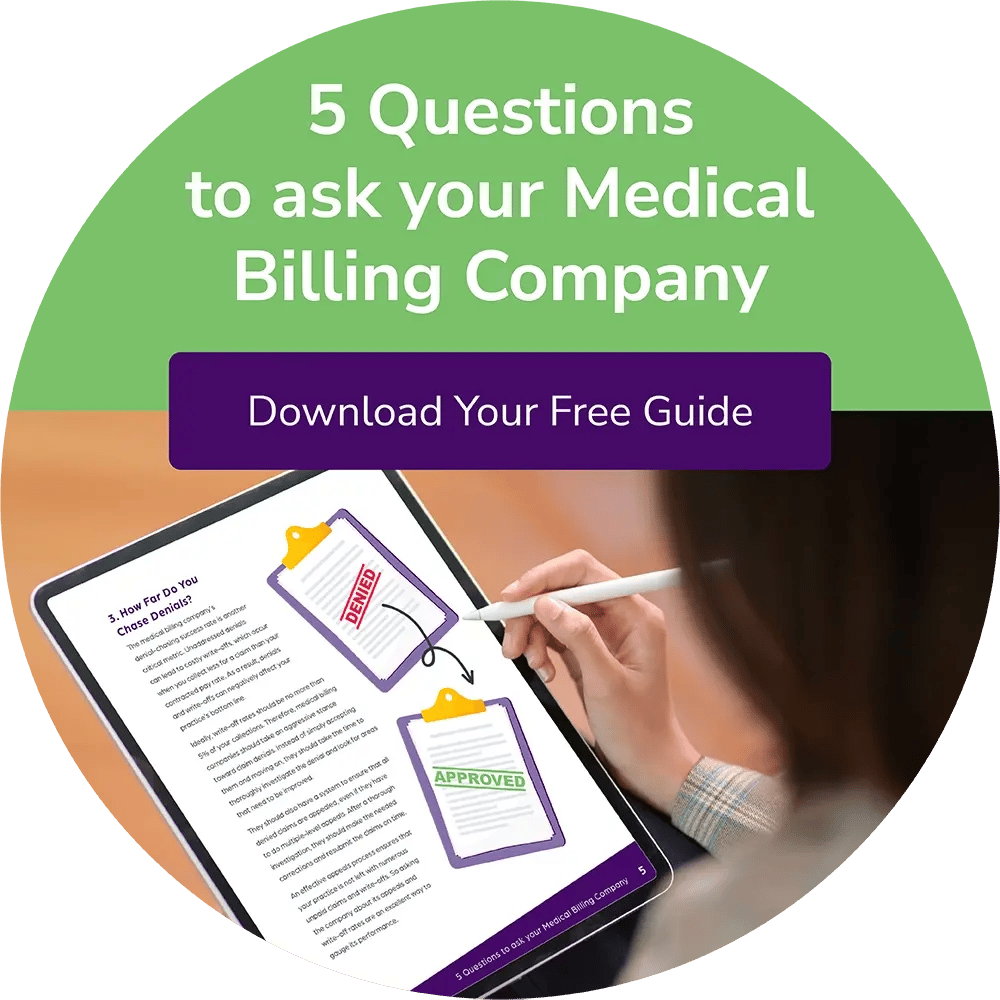New Medical Debt Regulations: What Providers Need to Know

Healthcare practices like yours provide valuable services, and you deserve to be paid for them. On the other hand, a health emergency can easily bankrupt your patient. As of 2021, Americans owed about $88 billion in medical debt. The government has recently stepped in to help relieve medical debt and crack down on illegal debt-collection practices.
These regulatory changes could impact your practice depending on how you collect unpaid debt. Here is what you need to know about the Biden-Harris administration’s new medical debt relief efforts.
Overview of the New Federal Actions on Medical Debt
This last year has brought several changes to medical debt regulations. In June 2024, the Consumer Financial Protection Bureau (CFPB) proposed a rule to remove medical debt from credit reports. Additionally, the American Rescue Plan, in partnership with the Biden-Harris administration, is allocating funds to eliminate medical debt for nearly 3 million Americans by the end of 2026.
The most recent actions that could impact your business include a crackdown on third-party debt collectors. Under the proposed rules, debt collectors must verify the debt is substantiated before they can collect. This means that if one of your patients believes you billed them in error, they have the right to ask for an itemized bill. Incorrect or unsubstantiated debts can lead to you and your practice being reported to the CFPB.
Other provisions for medical debt relief apply to military medical treatment facilities and tax-exempt hospitals. Military medical treatment facilities will be required to use a sliding-scale discount program. Tax-exempt hospitals must also offer financial aid to qualifying patients.
Clinicians can expect more federal actions to alleviate medical debt, as the Center for Medicare and Medicaid Services is adjusting annual surveys to understand the burden on seniors.
The Impact of Medical Debt on Patients and Practices
Medical debt impacts both patient and clinician. When patients rack up medical debt, it threatens their financial security. They also may start distrusting healthcare providers. Patients may reduce expenses or drain their savings to pay for unexpected procedures. Or worse, they might skip critical checkups and other medical services, thinking they will add to their medical debt.
As a healthcare provider, unpaid bills cause financial strain on your practice. Medical debt reduces your revenue and stands in the way of growth. You might hold off on improving equipment and facilities or stop expanding your practice because you lack cash flow. It is also taxing to your administrative team because they have to spend time working on claims and trying to collect outstanding payments.
To make matters worse, if you are using aggressive tactics to collect overdue payments, you risk violating regulations. You can also damage your reputation and patient trust.
Key Compliance Takeaways for Providers
Keep your practice in line with regulations and maintain patient trust by making sure your billing practices keep you in compliance by:
- Updating your coding systems as new rules and guidelines emerge to submit more clean claims.
- Using a centralized location for medical documents to match medical records with billing information easily.
- Training all administrative and clinician staff on processes regularly.
- Automating insurance verification and claim submittals to catch potential errors faster.
- Informing patients early about services that are not covered so that they can make arrangements to pay.
Benefits of Proactive and Patient-Centric Billing
A patient-centric approach to billing benefits you financially and solidifies your reputation as a trusted healthcare provider. Verifying insurance coverage before you start treating a patient helps eliminate surprise bills. You can walk each patient through what their insurance does and does not cover and give them other payment options if applicable.
This approach can also help patients understand their itemized bills so you and your practice do not get reported to the CFPB under the new regulations.
Automating claim reviews through technology also helps you minimize avoidable denials. Use software or work with medical billing professionals to review claims for coding and other errors before you submit them. You get paid faster, and your patients do not get surprise bills from their insurance companies.
The Importance of Staying Informed and Ready to Adapt
In the ever-changing world of healthcare, staying informed about new rules and regulations is essential. Consider designating a person to keep on top of new regulations and policy changes so you can adapt to new rules.
Staying on top of compliance is essential. Otherwise, you risk costly penalties and audits, which will likely increase as regulatory agencies prioritize medical debt relief. Always remember that reducing debt helps you and your patients.
Trust the Experts With Your Medical Billing
Want to spend time thinking about patient care instead of worrying about compliance? We have you covered. PUREDI offers end-to-end revenue management for healthcare agencies. We know how to navigate complex regulations and are current with the latest rules and regulations that could impact your practice.
Don’t risk falling out of compliance. Schedule a demo today, and let us help you optimize your billing practices.
Get Awesome Content Delivered Straight to Your Inbox!
Posts by topic
- RCM
- Medical Billing Software
- Outsource Your Medical Billing
- Compliance
- Physician Billing Services
- Denial Management
- AI
- Data Analytics
- EHR
- ERA
- reporting
- Automation
- Business
- Claim Scrubbing
- Coding
- Community
- Events
- LTPAC
- Medical Billing Companies
- Medicare
- Press Release
- Revenue Cycle Management
- business development
- clearinghouse See All See Less





